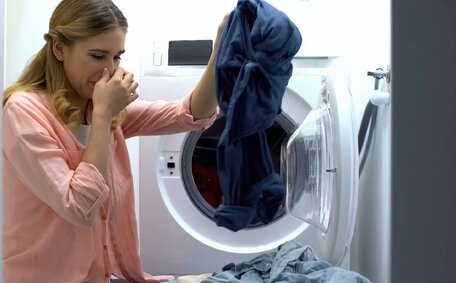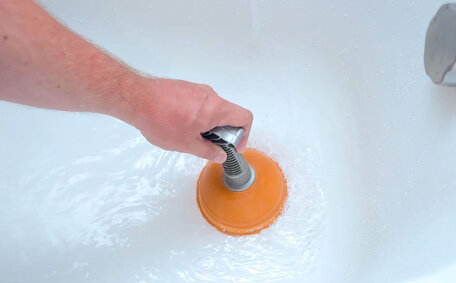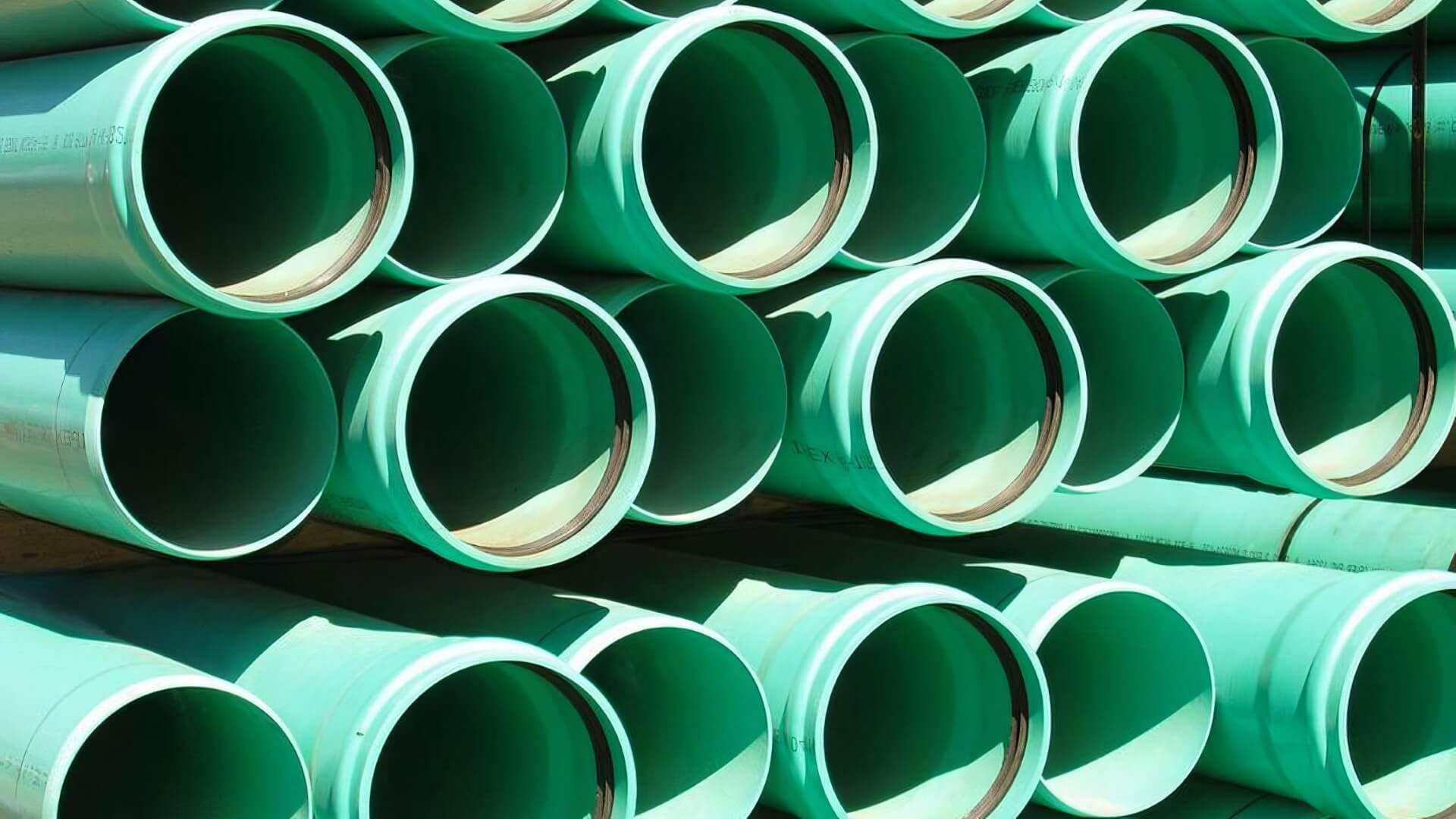Identifying Water Leaks in Your Home
Early detection of concealed leaks is essential to prevent extensive damage. Listen for running water noises that continue when all fixtures are off, as these can indicate water seeping into your walls.
Begin by thoroughly inspecting visible pipes, joints, valves, and taps for signs of moisture or drips, essential steps for ensuring the integrity of your plumbing. Additionally, inspect walls, floors, ceilings, and foundations for wet patches, water marks, or mould, which could indicate plumbing problems within your house.
A sudden spike in your water bill without increased usage could signal a hidden leak, posing a risk to your home’s plumbing. Turn off all taps and be aware that leaks may continue even when fixtures are not in use – a situation revealed by monitoring your water meter.
Some of the most common sources of leaks in homes are washing machines, dishwashers, toilets, hot water systems, pipes and taps. Make sure to promptly address minor leaks using your keen observation by adding food colouring to the tank to protect your water supply and stave off significant repairs in the future.
If you suspect or locate a big leak in a strata property, notify your own body corporate to shut off water supply immediately then call a licensed plumber for inspection and repairs. A substantial leak can rapidly cause internal structural damage, mould growth, erosion, and potential electrical hazards. Contact our licensed plumbing professionals for immediate assistance.
Using Your Water Meter to Detect Hidden Leaks
Your water meter can reveal hidden leaks that might otherwise remain undetected, helping to prevent damage from unaddressed water issues. To discover what to do when you suspect a leak, follow these steps:
- Check water leaks by locating the meter tap outside near the front boundary of your property. There should be a cover that you can lift off to check the water meter.
- Make sure to identify leaks using your taps, toilets, and other water-using appliances are not in use and switch off when leak detection is underway. This includes the washing machine, dishwasher, taps, toilet cisterns and any outdoor irrigation systems.
- Record the exact reading from your meter’s display to gain insight into your water usage patterns and detect potential leaks.
- Wait 1-2 hours ensuring not to use any water then return and learn how read your meter again to check for changes. Repeat this 2 or 3 times during the day or overnight to determine if water still flows despite all taps being turned off.
- If there has been consistent water usage indicated by the meter reading increasing despite all water being turned off suggests a possible source leak where your pipes run below ground on your premises, threatening to seep out your water reserves.
Our commitment to rectifying water meter inaccuracies means we only check your property’s water line with precision, offering a reliable way to detect hidden leaks. Finding and fixing leaks promptly enables a leak allowance in water savings and prevents potential flooding, damage and costly repairs.
Pinpointing the Source of the Leak
Once a leak is detected, urgently pinpointing its source is critical for tracing its origin and deciding on the most effective repair strategy. Initiate the process by turn off your all taps and segregating various segments of plumbing to thwart water coming through by shutting off isolation or control valves. Using the stop tap as a control valve allows you to control the water flow to specific areas like the bathroom, kitchen, laundry, and outdoor taps.
Check common household sources first during your inspections to verify they are not the origin of a leak your home is experiencing. Listen carefully beside sinks, basins, showers and check at the back toilet for running water noises to make sure no further leaks are present. Examine your hot water systems and the associated piping for potential leaks.
Don’t overlook the outdoor areas during leak checks – inspect garden taps, irrigation systems, pool plumbing, and water features.
The type of piping material used can greatly affect the severity of a water leak in your home. Copper pipes can experience pinhole corrosion leaks whereas PVC pipes often crack lengthways. Figuring out how leaks can caused emerge guides repair strategies – please call us for our licensed plumbing services.
Swift action to detect and repair leaks is vital to reduce water waste and prevent severe water damage, mould, flooding, and erosion on your property from an uncontrolled leak—reach out to us for help.
Common Sources of Household Water Leaks
Some of the most common sources of leaks in homes are washing machines, dishwashers, toilets, hot water systems, pipes and taps. These fixtures experience continual water pressure and wear which can lead to cracks, loose fittings, or corrosion over time, which must be addressed promptly to maintain system integrity.
Appliances such as washing machines and dishwashers have supply hoses that degrade over time and could burst, resulting in leaks. The fittings that link to your plumbing are also susceptible to wear, potentially leading to unwanted leaks—seek immediate inspection from licensed professionals. Improper installation or positioning can strain hoses and joints, leading to potential leaks.
Toilet cisterns contain water under pressure which can apply force through outlet pipes with every flush. The repetitive force can take its toll on the connections, potentially causing leaks using toilet cisterns and associated pipework. Undetected leaks from a toilet cistern can waste hundreds of litres water unnecessarily each day.
Common problem areas for leaks in the home’s plumbing system are the joints between pipes and waterusing fixtures, such as where different pipe types or materials meet. Thermal expansion pressures in hot water systems can also cause tanks and pipe connections to split or crack if not relieved by a pressure valve.
External factors can become the root cause leak within a home’s internal water system. When you’re dealing with clogged gutters and downspouts that are impaired, they fail to direct water away efficiently, thwarting proper your roof drainage. The eventual outcome home can face could be sodden soil allowing water to permeate through your home’s exterior walls, subfloor areas, or into its very framework.
Prompt identification of water leaks coupled with professional repairs by a licenced plumber helps mitigate the risk of water seeping through and causing unnecessary damage.
Temporary Fixes to Stop or Contain a Leak
If you’ve discovered a leak but can’t repair it right away, shut off water using the main valve to stop leak progression, call plumber assistance and consider some temporary fixes to help minimise damage:
- Locate the main water shut off valve (often situated near the water meter) for your residence and engage it to halt water ingress into your abode.
- If you come across a leaking tap or pipework, try to turn off water to that part, and secure the leaking spot with waterproof tape as a temporary fix, then call a plumber for a permanent solution.
- Place buckets, pans or towels beneath leaks to catch dripping water, emptying them frequently.
- Should you observe water nearing electrical wiring or gadgets, promptly turning off the water main and switching off electricity at the circuit breaker is essential for safety.
- Remove or lift up one metre inside any furniture, rugs and other valuables out of leak areas to prevent significant damage to your home.
- Open windows if possible in affected rooms to allow moisture evaporation, check your contents insurance coverage, and prevent mould growth.
While temporary fixes may mitigate leaks, they are not a replacement for permanent repairs. Contact Eastwood Plumbing for enduring solutions. Turn off water supply immediately and call a licenced plumber to inspect, locate the exact leak source and undertake professional repairs as leaks often require prompt attention.
Calling a Professional Plumber for Leak Detection and Repairs
Hiring a professional, licenced plumber is highly recommended for both finding and repairing any water leaks in your home; let us know how we can assist.
Our fully qualified plumbers at Eastwood Plumbing have advanced technology and expertise to accurately pinpoint concealed leaks plus the knowledge to make all necessary repairs to pipes, fittings and appliances.
The benefits of getting a professional plumber include:
- Our advanced water leak detection equipment to trace leaks unseen behind walls or underground
- Identifying and permanently fixing the root cause of leaks before they damage your home
- Preventing water damage worsening into structural damage problems
- Advising on potential faulty products requiring replacement
- Guaranteed workmanship and parts/labour warranties
For immediate assistance with leaks in Eastwood and the broader Sydney area, please reach out to our team at 1300 349 338 or [email protected].
We are available 24/7 for emergency plumbing needs; please call us anytime!
Preventing and Mitigating Water Damage
After halting a leak, take immediate steps to prevent additional water damage in your home. Remove any soaked carpets, padding or soft furnishings and allow the area to thoroughly dry out. Aim portable fans and dehumidifiers at affected walls and floors to speed up moisture evaporation.
You’ll need to discard any waterlogged furniture, plasterboard or insulation which may foster mould growth. Have electrical outlets near leaks inspected and refrain from using nearby appliances until confirmed safe.
Document all damage for your insurer with photos showing water migration from leaks, and keep receipts of repair and replacement costs. Should significant flooding or structural problems ensue as indicated in your building format plan sfpthe owner, it’s wise to consult your insurance policy and be responsible fixing as needed and engage with skilled professionals like plumbers and electricians.
Install leak detection devices linked to home alarm systems and isolation valves for individual water zones to reduce future repair responsibilities. Have swift repairs done by qualified tradespeople using quality fittings. Properly maintaining all household plumbing and water-using systems will also help prevent leaks occurring.
Implementing Leak Prevention Measures
Being proactive and taking the time to find out more about regular maintenance helps minimise the risk of leaks occurring in your home. Some preventative actions to take include:
- Regularly inspect all water fixtures and pipework visually and audibly for signs of potential leaks, such as drips, moisture, or strange sounds.
- Have a plumber install whole-home leak detection sensors that automatically shut down your water system when dampness is detected, preventing further issues.
- Upgrade from old steel pipes to modern PEX piping that better withstands temperature and pressure fluctuations, reducing cracking risks.
- Ensure overflow trays or protective sheeting beneath water heaters, washing machines and other water-connected equipment can catch drips.
- Maintain drainage systems by regularly clearing debris from your gutters downspouts, ensuring they direct water well away from your home’s foundations.
- Install a sump pump system to swiftly remove water from subfloor areas and safeguard your building’s structure if your property is flood-prone.
Promptly addressing minor leaks can significantly prevent escalating water damage. Regular maintenance enables early detection and timely intervention by experts, reducing risk to your property and conserving water.






